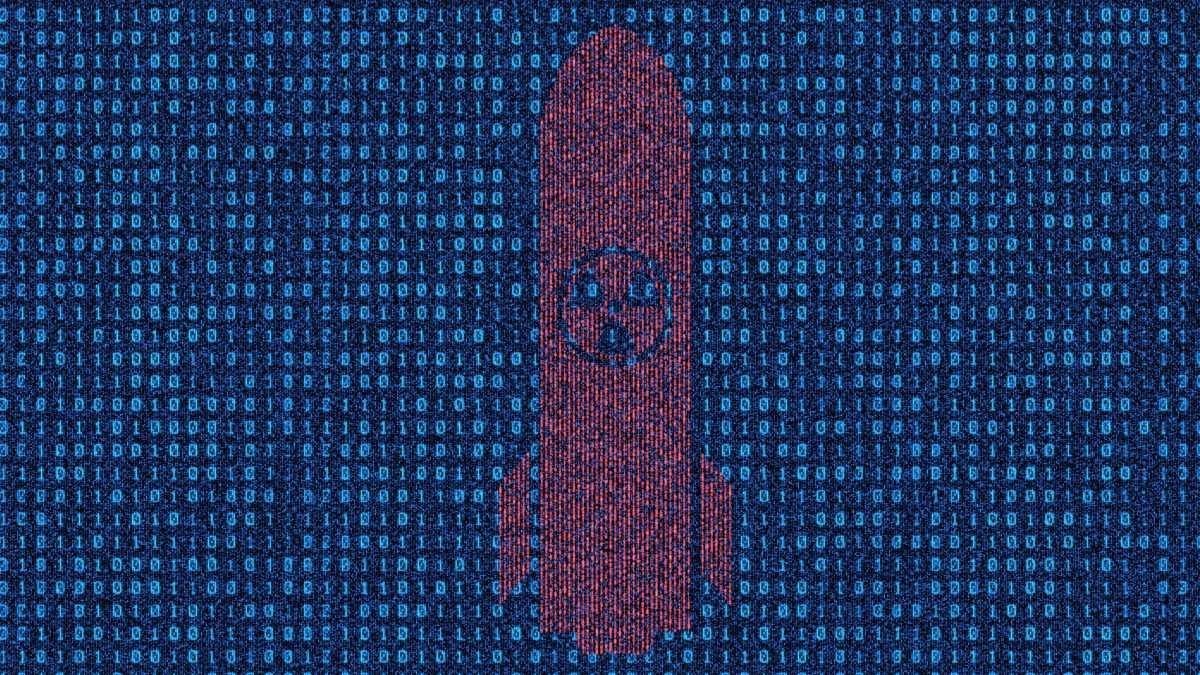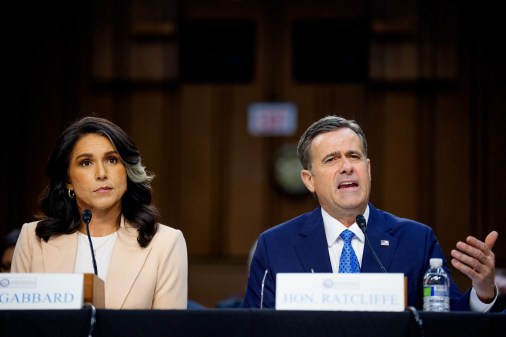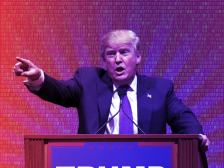Experts push back on Trump administration’s call to respond to cyberattacks with nukes

The U.S. might consider using nuclear weapons in response to any cyberattack that killed civilians and destroyed infrastructure, a defense official said Friday after rolling out a new Trump administration policy.
The new Nuclear Posture Review (NPR), Deputy Defense Secretary Patrick Shanahan told reporters at the Pentagon, states that “in the context of a non-nuclear attack against the U.S. or our allies that was strategic in nature, that involved substantial impacts to our infrastructure or people, we would consider that context in evaluating an appropriate response that might involve nuclear weapons.”
Shanahan also insisted that the new policy, although more explicit about the kind of non-nuclear attack that might trigger a nuclear response, did not lower the threshold for the U.S. use of atomic weapons and did not change U.S. policy.
“It’s been the long-standing policy of the U.S. to maintain some ambiguity around the circumstances under which we would consider the use of nuclear weapons in response to a strategic non-nuclear attack,” he said. “There’s no automaticity in this policy as to how the U.S. would respond.”
“The declaratory policy as articulated in this NPR is constant with that of the past,” he concluded, “There is no lowering of the nuclear threshold in this review.”
Not quite. It’s true that the last NPR, produced by the Obama administration contemplated the use of nuclear weapons to deter strategic non-nuclear attacks such as chemical or biological warfare.
But the authors also stated repeatedly that the goal of U.S. policy was to “continue to reduce the role of nuclear weapons in deterring non-nuclear attacks.” The ultimate goal was “making deterrence of nuclear attack on the U.S. or our allies and partners the sole purpose of U.S. nuclear weapons.”
By contrast, the new NPR appears to broaden the circumstances under which U.S. policymakers would consider the use of nuclear weapons — even including as a response to terrorist or other non-state nuclear attack.
What’s changed, acknowledged Shanahan, are “The circumstances under which the U.S. would contemplate the use of nuclear weapons … With respect to cyber or other forms of attack, I think the context of an attack against the U.S. or our allies would be very important,” he said.
A defense official later clarified that meant whether it was accompanied by other kinds of attacks or whether it might be the prelude to an all-out assault, perhaps involving nuclear weapons or other weapons of mass destruction.
The new NPR seeks to define the “extreme circumstances” beyond nuclear attack that would cause U.S. policymakers to consider the use of nuclear weapons. “Extreme circumstances could include significant non-nuclear strategic attacks. Significant non-nuclear strategic attacks include, but are not limited to, attacks on the U.S., allied, or partner civilian population or infrastructure, and attacks on U.S. or allied nuclear forces, their command and control, or warning and attack assessment capabilities.”
The new policy brought a hailstorm of criticism from former officials.
“It fails to explain why the overwhelming U.S. advantages in both conventional military capabilities, and yes, in cyber capabilities, is inadequate to respond to threats or attacks,” said Thomas Countryman, a senior State Department official in the Obama administration who is now chairman of the board of the Arms Control Association. He spoke at a press briefing Tuesday.
The same day, at a Defense Writers’ Group breakfast for reporters, Vice Chairman of the Joint Chiefs of Staff Air Force Gen. Paul Selva said the explanation of “strategic non-nuclear attack” had been added for clarity.
“There is a view that [without it, the wording] was too ambiguous,” he said. He insisted that the idea U.S. forces would respond with nuclear weapons to a cyberattack was “just fundamentally not true.”
The new policy “will greatly increase the risks of miscalculation or blunder,” wrote former Obama administration Energy Secretary David Moniz in a Bloomberg op-ed published Thursday. “If a cyberattack took out a major part of our electrical grid, would we be able to quickly and confidently identify the attacking country? If Russia, China, India, Pakistan and others adopt similar policies, are we moving down a path where nuclear use becomes highly probable?”
Selva, like Shanahan, stressed the importance of context. “If the attack has strategic consequence, if it kills a lot of people, if it interrupts our nuclear command and control and indications and warning systems — these are all hypotheticals — we … reserve the right to respond.”
You can read the review’s executive summary below.
[documentcloud url=”http://www.documentcloud.org/documents/4365698-Nuclear-Posture-Review.html” width=675 height=500]





